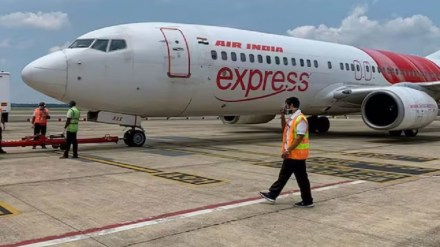Tata Group’s budget airline, Air India Express, has successfully completed its merger with AIX Connect (formerly AirAsia India), a key move aimed at creating a unified low-cost carrier under the Air India umbrella. This merger is designed to enhance profitability without putting undue strain on the airline’s financial health, according to Aloke Singh, Managing Director of Air India Express.
Addressing concerns about AIX Connect’s previous financial challenges, Singh assured that the integration would accelerate the airline’s path to profitability. “The merger process was completed in October. The integration of AIX Connect will expedite our path to profitability by achieving significant scale, optimising costs, and better utilising our assets. The objective is to build a robust, scalable network that supports long-term growth,” Singh said.
Air India Express loss widens; AIX Connect shows improvement
Despite a 33% year-on-year increase in revenue to Rs 7,600 crore in FY’24, Air India Express posted a net loss of Rs 163 crore, compared to a profit of Rs 117 crore in FY’23. The loss was attributed to a rise in expenditure, which increased by 38.3% to Rs 7,763 crore, driven by higher operating costs.
However, AIX Connect’s net loss for FY’24 was reduced to Rs 1,149 crore, down from Rs 2,750 crore in FY’23, signaling early benefits from the merger and integration process.
Air India Express and Air India to target different market segments
Under the Tata Group’s restructuring, Air India Express, a low-cost carrier (LCC), operates alongside Air India, which merged with Vistara to become a full-service airline. Singh explained that this structure provides clarity, allowing both entities to focus on distinct business models and market segments.
He acknowledged that the airline’s current expansion phase might temporarily affect profitability, but stressed the importance of sustainable, measured growth. Singh said that launching new routes requires market development through offers, incentives, and promotional fares.
AI Express set to double its fleet in 2-3 years
Looking ahead, Singh revealed Air India Express plans to double its fleet to 175 aircraft in the next two to three years, with a focus on both domestic and international expansion. Notably, 50% of the airline’s capacity is dedicated to domestic routes, particularly linking Tier 2 and Tier 3 cities to major metro hubs.
Singh pointed out that these regional routes are among the fastest-growing segments of the market, accounting for two-thirds of the overall demand.
AI Express focuses on rational fares amid cost pressures
Discussing airfare trends, Singh highlighted that despite significant cost pressures, fares have remained below inflation levels. Singh highlighted that rational fares are essential for achieving a reasonable return on investment while keeping prices attractive and competitive for customers. He also noted that fuel costs, which make up 40% of airline expenses, have not been fully reflected in fare increases.
Singh pointed out that the dynamic nature of passenger demand makes it challenging to implement fixed fare mechanisms, unlike other stable sectors such as utilities.
With ongoing market consolidation in the airline industry, Singh sees more rational pricing emerging, benefiting both the sector and consumers.
“With airline market consolidation, we are seeing more rational pricing. This is good for the industry, players, and the entire ecosystem, enabling robust growth and investments going forward. We see this positive shift happening in the Indian market now, with serious players taking a long-term view of the business,” he concluded.
